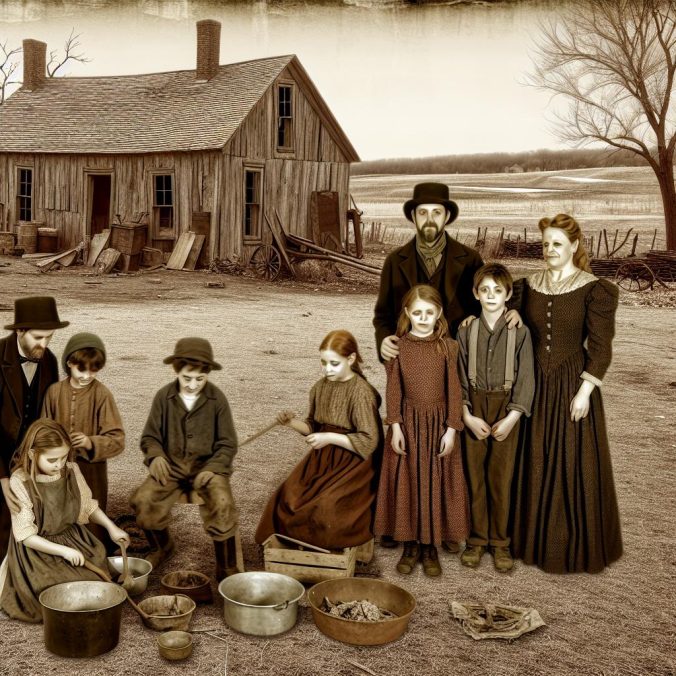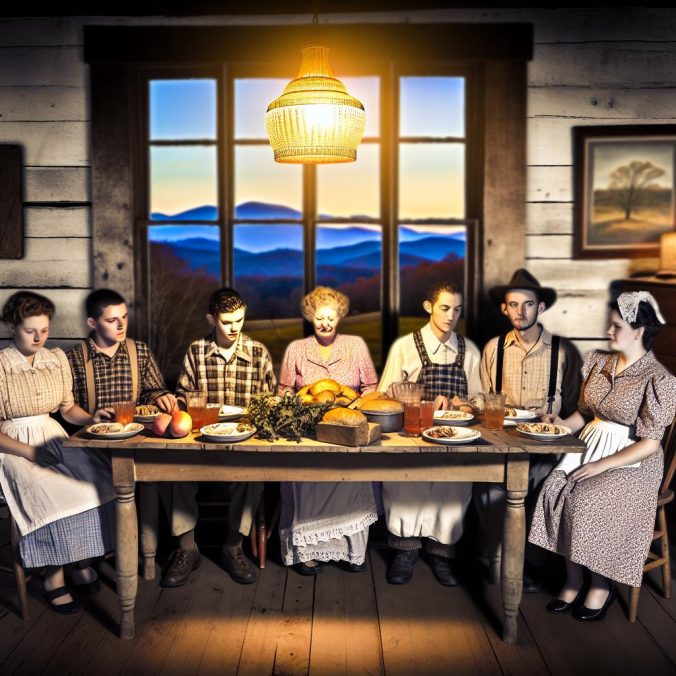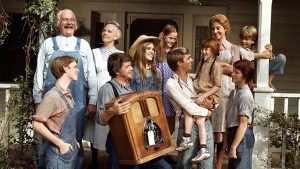The Waltons and the Great Depression
The American television series The Waltons provided a vivid portrayal of life during the Great Depression, offering viewers an understanding of this crucial period in history. Set in the 1930s, it focused on the experiences of the Walton family, who lived in rural Virginia. The show did not merely entertain; it educated audiences about the economic hardships and social dynamics of the time.
Economic Challenges
One of the primary themes in The Waltons was the economic struggle faced by the family. The Great Depression was marked by widespread unemployment and poverty, and the Walton family was not immune to these difficulties. John Walton Sr., the family patriarch, ran a sawmill and often faced financial challenges as he tried to keep his business afloat. This struggle illustrated the broader economic instability faced by millions of Americans during the era.
The economic challenges were not just a backdrop but were woven into the fabric of the storyline, portraying how the financial difficulties influenced every decision and conversation. The sawmill, often the focal point of many episodes, symbolized the struggle of small business owners who were striving to weather the storm without compromising their values or the well-being of their families. This narrative helped contemporary viewers, many of whom were far removed from those difficult times, to grasp the relentless pressure and uncertainty that characterized the lives of those who lived through the Great Depression.
The family’s efforts to keep their business and household running showed the complexity of balancing business interests with family obligations. John Walton Sr.’s continual battles to secure contracts, manage debts, and maintain his workforce underscored a common reality. Many small business owners were forced to reinvent themselves, adapt to changing market conditions, and make sacrifices to prevent slipping into bankruptcy.
Community and Family Support
The Waltons emphasized the importance of family and community support during tough times. In an era when many families were fragmented by financial strain, the Waltons remained united. They consistently helped neighbors and relied on the community for mutual support, highlighting the resilience and resourcefulness needed to survive the Great Depression.
This sense of community was a lifeline for many during the 1930s. The Waltons illustrated how sharing resources and wisdom created a support system that was integral to overcoming daily struggles. The narrative wove a rich tapestry of interdependent relationships, where goodwill and cooperation were as vital as food and shelter. The depiction of communal gatherings, collective problem-solving, and joint celebrations painted a picture of an era defined by its reliance on human connections.
Each episode resonated with viewers by showing acts of kindness, such as neighbors helping with harvests or lending money even when they had little themselves. This culture of reciprocity allowed people to pool resources and talents, demonstrating the critical role that social capital played during the Great Depression.
Education and Aspirations
Education was portrayed as a beacon of hope for breaking the cycle of poverty. The show’s younger characters, like John-Boy Walton, viewed education as a crucial tool for creating a better future. Despite their financial limitations, the family prioritized education, reflecting its significance in American society during the Depression.
John-Boy’s aspirations to be a writer embodied the belief that education and literacy were keys to social mobility and personal fulfillment. The show mirrored the historical shift where education began to be seen not just as a path to financial stability, but as a means to achieve one’s dreams and aspirations. It highlighted how education was evolving to address both economic needs and personal development.
The struggle to provide and partake in education during the tough economic times reflected a broader national narrative where schools and literacy initiatives were important tools in the battle against poverty. The emphasis on education in The Waltons underscored its potential to transform lives, offering a pathway to not only survive but to thrive despite the constraints imposed by the era.
Representation of Rural Life
The rural setting of The Waltons offered an authentic glimpse into farm and small-town life during the 1930s. The show depicted the challenges and simplicity of rural existence, from bartering for goods to relying on land for sustenance. These elements provided an accurate depiction of how rural communities navigated the era’s hardships.
Beyond its portrayal of economic grievances, the series showcased the cultural richness and unique traditions of rural America. The depiction of activities such as homegrown food preparation, handcrafted goods, and local folk events gave insight into both the material and cultural economies of the time. The focus on self-sufficiency, while driven by necessity, highlighted an underlying spirit of creativity and resilience.
Additionally, the importance of the natural environment was a recurrent theme, recognizing the land’s dual role as both a source of sustenance and a harsh mistress. The Waltons’ commitment to land stewardship provided viewers with a nuanced understanding of the delicate balance people maintained with nature to ensure survival in rural settings.
This genuine representation allowed audiences to appreciate the complexities inherent in rural life: isolation and interdependence, scarcity and abundance, despair and hope. Through the lens of the Walton family, The Waltons afforded its audience not just historical insight but also a window into the enduring values that eases the burdens of hardship and celebrate the resilience of the human spirit.
For more information on the impact of The Waltons and its depiction of the Great Depression, you can visit this resource.



